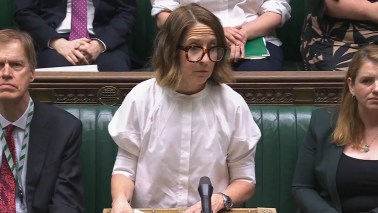Owning a property in Central London is a dream for some, but a burden for others – if you are an accidental landlord, that is. An accidental landlord? But that I mean you were lucky enough to buy a property 20 years ago, then decided to move out of London – and were left wondering what to do with it. Rent it out? Sell it? Only a mad man would want to sell a property in London? Right. Wrong.
Recent figures from property website Rightmove showed that this year, asking prices for homes in London have recorded their biggest annual fall so far this decade – having dropped on average by £18,000 in a month.
The larger falls are in some of London’s most expensive boroughs, which in the past were thought of as being ‘bulletproof’ when it came to house price appreciation and a steady investment income. The average asking price of a home in Kensington & Chelsea, for example, fell by more than £300,000 between August and September.
All of a sudden, the future isn’t quite so bright for the accidental landlord or indeed the buy-to-let landlord: possible UK interest rate rise in November; stricter mortgage lending guidelines, a reduction in mortgage interest relief for residential buy-to-let properties (to 20%), Brexit…
Higher UK interest rates?
Gertjan Vlieghe, an external member of the Bank of England’s rate-setting panel, hinted that a rise of more than 0.25 points may be needed, which sent the pound soaring to the highest level since the day after the Brexit vote, recently.
Stricter mortgage lender guidelines
From October 2017, the Prudential Regulation Authority will enforce stricter, more ‘responsible’ portfolio lending criteria. This comes three years after the UK residential property market was hit by similar tough mortgage lending assessments.
Under the current system, any buy-to-let mortgage application is assessed on the rental income potential and the value of the property itself. From next month, lenders will have to examine and assess the loan risk of the entire portfolio as well as the landlord’s aggregated debt, cash flow, property investment experience, assets and liabilities (including tax obligations), total income, total borrowing and associated costs across all properties. And that’s before they carry out the usual assessment of the loan risk on the new property.
In addition, lenders will apply a stress test to the loan based on a portfolio buy-to-let landlord’s ability to pay should the interest rate rise above 5.5%.
Only once the affordability criteria has been met will a lender consider the mortgage based on whether the property’s projected rental value would equal 145% of the monthly mortgage payment, according to London estate agent Benham & Reeves.
Mortgage interest relief reduction
Landlords are currently able to claim tax relief on the top rate of tax of up to 45%. The changes mean landlords will no longer be able to deduct mortgage interest payments or any other finance-related costs from their turnover before declaring their taxable income.
However, the new rules are being phased in over a four-year period. Landlords will still be able to deduct 75% of costs from rental income in the current tax year. In the 2018/19 tax year it will drop to 50% and then to 25% in 2019/20.
A combination of all of these factors has caused rental values to drop (to the lowest level since the financial crisis, according to lettings insurance company HomeLet), Europeans to leave in droves and overseas relocators to relocate elsewhere.
So where does that leave the accidental landlord? Someone who never wanted to be a landlord in the first place, stuck with a property they might sell at the wrong time due to Brexit.
If a property was sold in the middle of Brexit negotiations, then they would look like a ‘distressed seller’ and join the queue of other accidental landlords rushing to sell their property at a discount before Britain leaves Europe.
If the property was sold just after Brexit, the accidental landlord might still be facing Brexit fallout. However, the UK housing market might have become more stable, as the UK’s position outside Europe has become clearer.
How about waiting another 5 years? No one is willing to stick their neck out regarding the shape of the UK housing market this far ahead or indeed in ten years’ time. So it’s impossible to say what benefits, or negatives, playing the waiting game could have.
If you are an accidental landlord, the best solution is probably to assess your own financial circumstances on an annual basis. Forget the ‘Brex-economics’ – ultimately it is down to whether you can afford a second, third or fourth property.






Comments